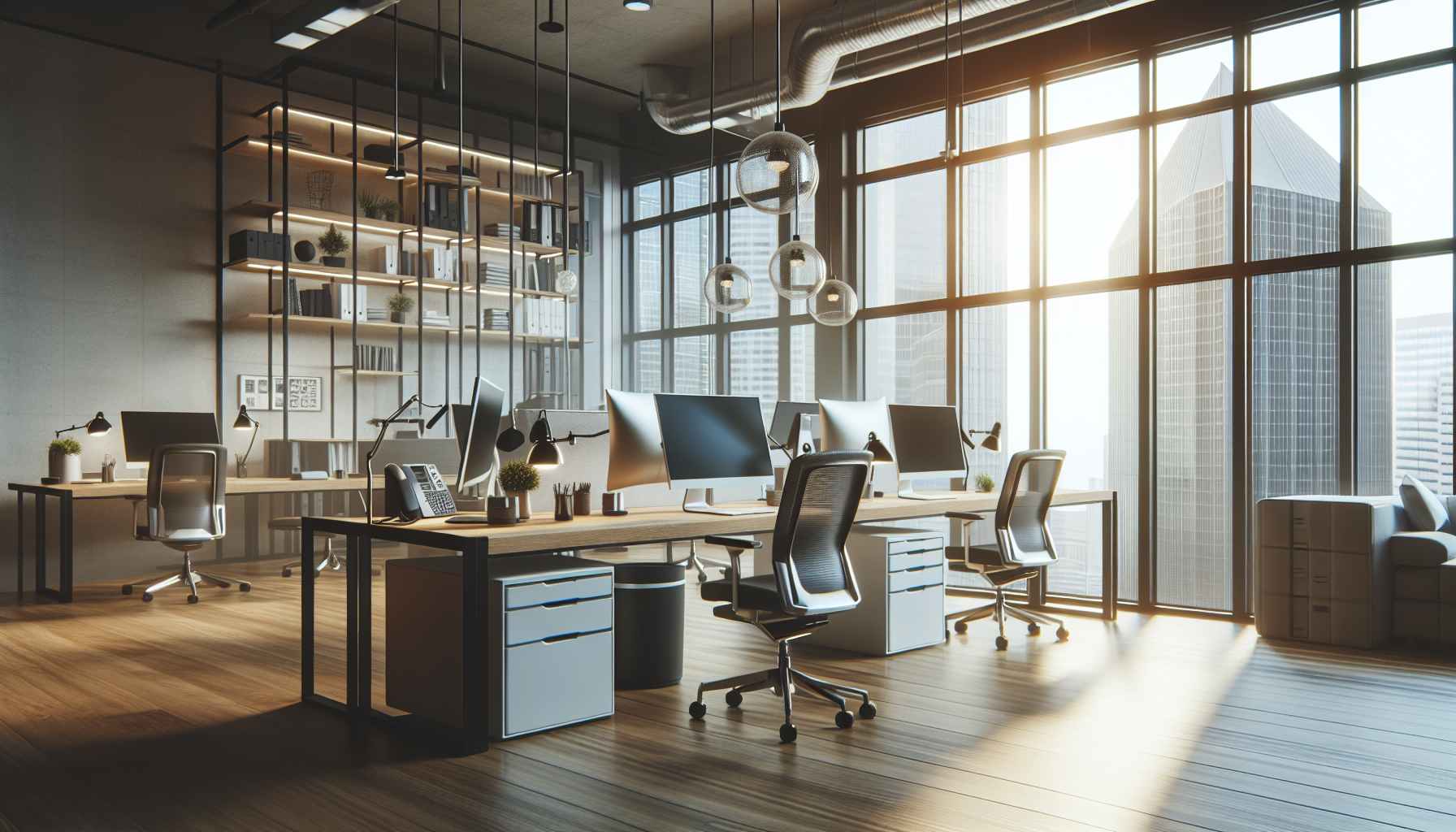In order to create a functional and productive work environment, it is essential to understand the basic requirements of an office. From comfortable furniture to reliable technology, these elements play a crucial role in ensuring smooth operations and satisfied employees. This article will explore the key components needed to establish an efficient office space, allowing you to create a workspace that promotes productivity and fosters a positive working atmosphere.
Location
Choose a location for your office that is easily accessible to both employees and clients. Consider factors such as proximity to public transportation, parking availability, and overall convenience. A suitable neighborhood is important for creating a positive work environment. Look for an area with low crime rates, well-maintained surroundings, and amenities such as restaurants, cafes, and shops nearby. Additionally, consider the availability of amenities such as banks, post offices, and gyms to cater to the needs of your employees and clients.
Layout and Design
The layout and design of your office play a crucial role in productivity and overall satisfaction. Adequate space is essential to allow employees to work comfortably and efficiently. Consider the number of employees and the nature of their work when determining the size of the office. Efficient use of space is also important, ensuring that every area is utilized effectively and efficiently. Natural lighting is not only aesthetically pleasing but also boosts productivity and enhances the overall atmosphere. Invest in windows and skylights to let in ample sunlight. Ergonomic furniture, such as adjustable chairs and desks, are essential to maintain employee comfort and prevent health issues. Lastly, noise control measures, such as soundproof walls or partitions, help create a peaceful and distraction-free environment for your employees.
Equipment and Technology
To ensure smooth operations, your office needs to be equipped with the right technology and equipment. Computers and peripherals, such as printers, scanners, and projectors, are essential for daily tasks. Invest in modern, reliable equipment that meets the specific needs of your business. A reliable phone system with features such as call forwarding and voicemail is crucial for effective communication. Printers and copiers are necessary for document management and reproduction. Make sure to provide a fast and reliable internet connection to keep your employees connected and productive. Additionally, consider investing in audiovisual equipment for presentations and conferences.
Communication
Efficient communication channels are vital for the success of any office. Email and messaging systems enable quick and easy communication between employees and clients. A reliable telephone service with clear audio quality is essential for both internal and external communication. Fax machines, although less common these days, are still necessary for certain industries. Video conferencing tools are becoming increasingly important, especially for remote or global teams. These tools allow face-to-face communication and collaboration despite physical distances, enhancing teamwork and productivity.
Utilities
Ensuring that your office has reliable utilities is vital for day-to-day operations. Electricity is a fundamental requirement for powering all the necessary equipment and lighting. Adequate heating and cooling systems are essential to maintain a comfortable working environment throughout the year. Access to a reliable water supply is necessary for drinking, cleaning, and other essential tasks. Waste disposal services, such as trash bins and recycling facilities, should be readily available to maintain a clean and sanitary office space.
Safety and Security
The safety and security of your office and employees should be a top priority. Implement fire safety measures, such as fire extinguishers, smoke detectors, and fire escape plans, to prevent and handle emergencies. Consider installing security systems, including CCTV cameras, access control systems, and alarms, to deter potential theft or unauthorized access. Clearly marked emergency exits should be easily accessible for all employees and visitors. First aid kits should be readily available in case of injuries or medical emergencies.
Storage
An organized office requires adequate storage solutions. File cabinets are essential for securely storing important documents and files. Shelving units are useful for organizing books, binders, and other reference materials. Lockers or cabinets for personal belongings create a sense of security and allow employees to keep their items safe during working hours.
Furniture and Furnishings
Investing in comfortable and practical furniture is important for employee satisfaction and productivity. Desks and chairs should be ergonomically designed to prevent discomfort and promote good posture. Meeting tables and chairs should be spacious enough to accommodate multiple participants. Cabinets and shelves provide additional storage space while keeping the office tidy and organized. A well-furnished reception area creates a positive first impression for clients and visitors.
Cleanliness and Maintenance
Maintaining a clean and well-maintained office is crucial for both employee morale and overall hygiene. Regular cleaning should be scheduled to keep the workspace tidy and presentable. Adequate trash disposal mechanisms should be in place to prevent unpleasant odors and maintain cleanliness. Promptly addressing maintenance and repair issues, such as plumbing leaks or faulty equipment, is essential to prevent disruptions and ensure a smooth working environment.
Health and Wellness
Creating a healthy and supportive work environment is essential for employee well-being. Comfortable temperature control ensures that employees can work in a pleasant and productive atmosphere. Proper ventilation improves air quality and reduces the risk of respiratory issues. A dedicated break and refreshment area provides employees with a space to relax and recharge during work hours. Access to natural elements, such as greenery or outdoor areas, can have a positive impact on employee mental health and well-being.
By considering these basic requirements, you can create an office space that promotes productivity, collaboration, and employee satisfaction. Remember, a well-designed and equipped office is a crucial investment in the success of your business.
